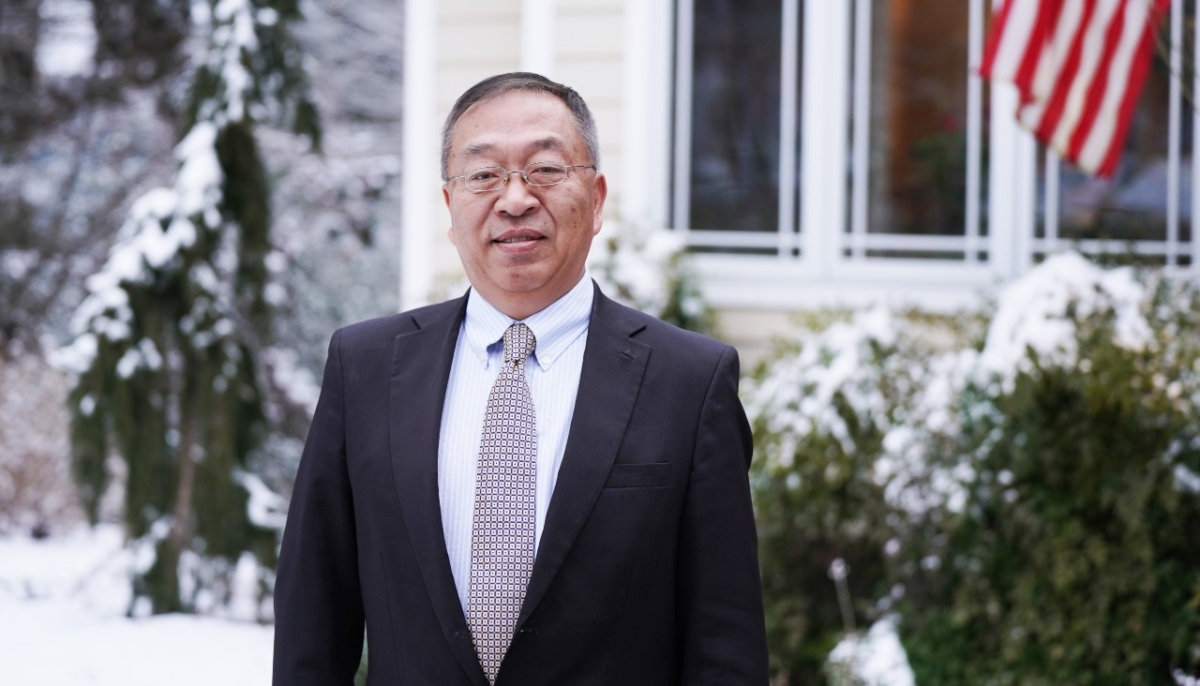Washington should challenge the Chinese communist regime on its human rights record in every engagement with Beijing because it’s the regime’s greatest weakness, according to Miles Yu, director of the China Center at Hudson Institute.
“We cannot just engage China on what China is good at [while] ignoring the weakness, the vulnerability of that regime,” Mr. Yu said in a recent interview with NTD, a sister media outlet to The Epoch Times. “The biggest weakness and vulnerability of the Chinese communist regime is human rights.”
“Human rights will basically decide the future relationship of the two nations, and the relationship between China and the rest of the world.”
When Secretary of State Antony Blinken visited China earlier this week, he threatened to take action if China continues to support Russia’s war machine and raised concerns on issues including Beijing’s non-market economic practices and human rights violations.
Mr. Blinken said he brought up the case of American citizens who are wrongfully detained or subjected to an exit ban during meetings with Chinese Communist Party (CCP) leader Xi Jinping and senior Chinese officials.
“I also raised concerns about the erosion of Hong Kong’s autonomy and democratic institutions, as well as transnational repression, ongoing human rights abuses in Xinjiang and Tibet, and a number of individual human rights cases,” Mr. Blinken told reporters as he wrapped up three days of talks in China.
For Mr. Yu, a former China policy adviser to former Secretary of State Mike Pompeo, human rights should feature more prominently in direct contact between U.S. and Chinese officials.
“China is trying its best to stop all discussion about the human rights conditions in China, because abuse and suppression of human rights is the innate nature of the communist regime,” he said.
The United States focusing on the CCP’s human rights record is something Beijing is “really be afraid of,” Mr. Yu said, calling it “the biggest bargaining chip” the United States has in negotiations with China.
“I think we have been so timid to … not really put the emphasis on this very important part of this bilateral relationship engagement,” he added.

The CCP has tightened its control over the country by stifling critics and arresting numerous dissidents, minority groups, and adherents of religious and spiritual faiths.
The State Department’s 2023 human rights report on China, released a day before Mr. Blinken’s visit to Shanghai and Beijing, provided a detailed accounting of credible reports of rights violations by the Communist Party, such as “arbitrary or unlawful killings,” forced disappearance, and mass detention.
The report listed over a dozen prominent prisoners of conscience who remain in Chinese jails, including Uyghur scholar Ilham Tohti, human rights lawyer Gao Zhisheng, citizen journalist Zhang Zhan, and Falun Gong practitioner Zhou Deyong.
In addition to its violations inside China, the report also highlights the regime’s efforts to intimidate or punish its detractors in the United States and elsewhere.
The CCP is to Blame for US–China Tensions
Mr. Blinken’s trip to China—following a similar visit by Treasury Secretary Janet Yellen—is part of the Biden administration’s efforts to stabilize the still-fraught relationship between the world’s two largest economies. Tensions are flaring on multiple fronts. In recent months, the United States has taken more action in response to China’s non-market trade policies and practices that have put U.S. companies and workers at a competitive disadvantage.
The Office of the U.S. Trade Representative is probing Beijing’s unfair trade practices in maritime, logistics, and shipbuilding industries. President Joe Biden has called to triple tariffs on steel and aluminum from China.
The CCP’s top diplomat, Wang Yi, told Mr. Blinken that Washington has taken “endless” measures to suppress China’s economy, trade, as well as science and technology, according to a Chinese readout of their meeting on Friday. Mr. Xi warned the top U.S. diplomat against “targeting, opposing, or harming” the regime, Beijing’s Foreign Ministry said in a statement.
Speaking at a press conference following the meetings, Mr. Blinken emphasized that the the United States’ actions are not aimed at “holding back China’s development, nor are we decoupling our economies.”
But Mr. Yu said there is no need for the United States to defend itself.
“By even responding to China’s accusation of decoupling itself, it’s an indication that we have fallen into a trap set up by China, because the most important part in deciding the nature and direction, and even the temperature of the bilateral relationship, it’s not the United States, it’s China,” Mr. Yu said. “They’re the ones that made this relationship unstable.”
From The Epoch Times
